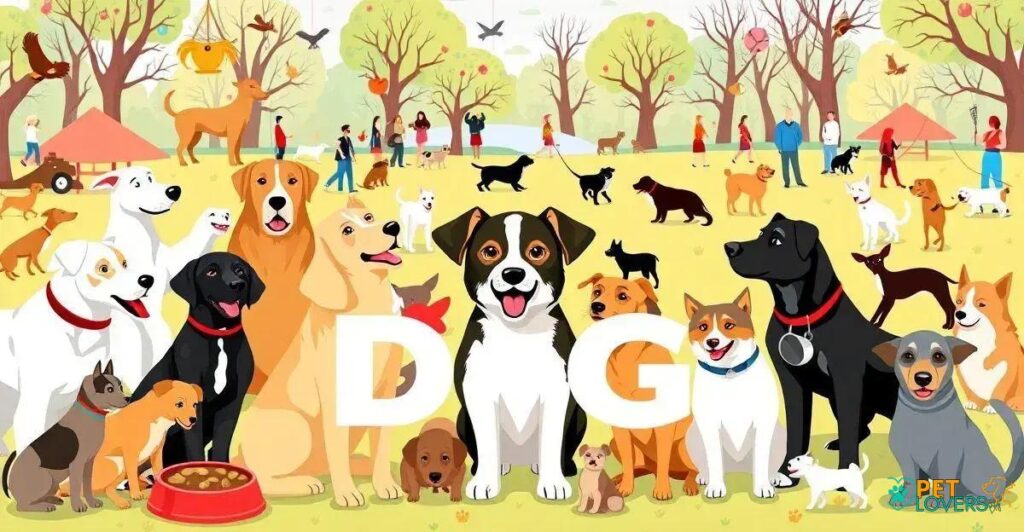Dogs have been integral to human history for thousands of years, evolving from wild animals to cherished companions through domestication and selective breeding. With over 340 recognized breeds, they display diverse characteristics and temperaments, necessitating a comprehensive understanding of their behavior and care requirements.
Dogs (Canis lupus familiaris) are one of the most popular pets in the world, but have you ever wondered what is dog? These loyal companions have been by human side for thousands of years, but their origins and characteristics are still shrouded in mystery.
In this article, we’ll delve into the fascinating world of dogs, exploring what is dog, and uncover 10 surprising facts you never knew about these amazing animals.
Chapter 1: What is Dog?
Dogs (Canis lupus familiaris) are a domesticated subspecies of the gray wolf, a mammal belonging to the family Canidae. They are widely kept as pets and are used for a variety of tasks such as herding, guiding, and assisting people with disabilities. Dogs have been domesticated for thousands of years and have undergone significant changes through selective breeding.
The history of dogs dates back to thousands of years, with evidence of dog domestication found in ancient civilizations such as Egypt and Mesopotamia. Archaeological evidence suggests that dogs were initially used for tasks such as hunting and guarding, and later became companions to humans. Over time, humans selectively bred dogs for specific traits, leading to the incredible diversity of breeds we see today.
Dogs come in a wide range of breeds, each with its unique characteristics, temperament, and physical appearance. From the tiny Chihuahua to the massive Great Dane, dogs have been bred for various purposes, such as herding, hunting, and companionship. With over 340 recognized breeds, it’s no wonder that dogs are one of the most diverse species on the planet.
Dogs require proper care and attention to thrive, including a balanced diet, regular exercise, and regular veterinary check-ups. Proper grooming, training, and socialization are also essential for a dog’s overall well-being. By providing the right environment and care, dog owners can help their pets live happy and healthy lives.
Dog training and behavior are crucial aspects of dog ownership, as they help establish a strong bond between dog and owner. Positive reinforcement training methods, such as clicker training and reward-based training, are effective and humane ways to train dogs. Understanding dog behavior and body language can also help prevent accidents and ensure a safe and harmonious home environment.
Chapter 2: Dog History and Evolution
The domestication of dogs is believed to have occurred between 15,000 to 30,000 years ago, with evidence of dog-like creatures found in ancient human settlements. Fossil records show that early dogs were smaller and more wolf-like, with physical characteristics that were adapted to hunting and scavenging.
Over time, humans selectively bred these early dogs for desired traits, leading to the incredible diversity of breeds we see today.
Chapter 3: Dog Breeds and Characteristics
With over 340 recognized breeds, dogs exhibit a wide range of sizes, shapes, and characteristics. From the tiny Chihuahua to the massive Great Dane, each breed has its unique features, temperament, and physical appearance.
Some breeds are known for their high energy levels, while others are calm and gentle. Understanding the characteristics of different breeds can help potential owners find the perfect companion for their lifestyle.
Chapter 4: Dog Care and Health
Proper care and attention are essential for a dog’s overall health and well-being. A balanced diet, regular exercise, and regular veterinary check-ups are crucial for maintaining a dog’s physical and mental health.
Additionally, grooming, training, and socialization are important for a dog’s emotional and behavioral well-being.
By providing the right environment and care, dog owners can help their pets live happy and healthy lives.
Chapter 5: Dog Training and Behavior
Dog training and behavior are crucial aspects of dog ownership, as they help establish a strong bond between dog and owner.
Positive reinforcement training methods, such as clicker training and reward-based training, are effective and humane ways to train dogs.
Understanding dog behavior and body language can also help prevent accidents and ensure a safe and harmonious home environment.
By setting clear boundaries and providing consistent training, dog owners can help their pets become well-behaved and well-adjusted members of the family.
Conclusion: Understanding and Appreciating Dogs
By exploring the fascinating world of dogs, we have gained a deeper understanding of their history, evolution, breeds, care, and behavior.
From their humble beginnings as wild animals to their current status as beloved companions, dogs have undergone significant changes through domestication and selective breeding.
Amazing Deals on Dog Products!
Shop now for incredible deals on dog products at Amazon.com.
LEARN MORE
With this newfound appreciation for dogs, we can better understand the importance of providing them with proper care and attention, and work towards building a stronger bond between humans and dogs.
Whether you’re a seasoned dog owner or just a dog enthusiast, the world of dogs has something to offer everyone.
FAQ – Frequently Asked Questions about Dogs
What are the benefits of dog training?
Dog training can help improve behavior, strengthen the bond between dog and owner, and enhance overall well-being.
How can I care for my dog’s health?
Regular exercise, a balanced diet, and regular veterinary check-ups are essential for maintaining your dog’s physical and mental health.
What are the different breeds of dogs?
There are over 340 recognized breeds of dogs, each with its unique characteristics, temperament, and physical appearance.
How can I understand my dog’s behavior?
By paying attention to body language, vocal cues, and behavioral patterns, you can better understand your dog’s needs and emotions.
Can dogs be used for therapy?
Yes, dogs can be trained as therapy dogs to provide comfort, emotional support, and companionship to people in need.
Are dogs intelligent animals?
Yes, dogs are highly intelligent animals that are capable of learning, problem-solving, and adapting to new situations.

